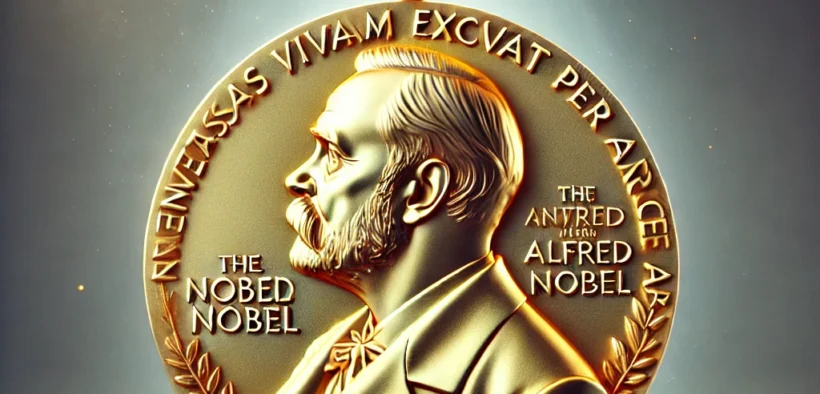2024 Nobel Prize in Physiology or Medicine Awarded for Discovery of MicroRNA: A Groundbreaking Step in Genetic Research
Share

2024 Nobel Prize in Medicine: Honoring Groundbreaking MicroRNA Discovery
Victor Ambros and Gary Ruvkun have been awarded the 2024 Nobel Prize in Physiology or Medicine for their groundbreaking discovery of microRNA and its role in post-transcriptional gene regulation. This discovery has reshaped our understanding of how genes are regulated at a fundamental level.
Announced on Monday in Sweden, this Nobel Prize recognizes their revolutionary research, which reveals “an entirely new dimension of gene regulation.” The discovery of microRNA, a tiny but vital RNA molecule, has impacted various fields, from genetic research to disease treatment.
What Is MicroRNA?
MicroRNA is a class of small RNA molecules that play a crucial role in regulating gene activity. These molecules are essential because they control how, when, and to what extent genes are expressed in cells, which ultimately determines the function of those cells. This process is crucial for everything from cell differentiation (like turning stem cells into specialized nerve or muscle cells) to responding to environmental changes.
The prize-winning research focused on C. elegans, a small roundworm that is widely used as a model organism in biological research. Ambros and Ruvkun’s work demonstrated that microRNA can control the expression of thousands of genes, adding a new layer of complexity to our understanding of the human genome.

The Importance of This Discovery
MicroRNA plays a fundamental role in cell regulation, development, and differentiation. Ambros and Ruvkun’s discovery revealed that there are over 1,000 microRNAs in the human genome, each potentially regulating hundreds of genes. This discovery has far-reaching implications for fields like cancer research, neurobiology, and genetic engineering.
“Think of the DNA in our chromosomes like an instruction manual for the body,” the Nobel committee explained. “MicroRNAs ensure that each cell only reads the instructions it needs, helping specific cells, like muscle or nerve cells, develop their unique characteristics.”
How MicroRNA Research Benefits Medicine
The research on microRNAs opens potential pathways for new treatments and medical technologies. By understanding how these tiny molecules regulate genes, scientists can develop targeted therapies for conditions like cancer, heart disease, and neurological disorders. For example, abnormal microRNA activity is often linked to cancerous growths, making microRNAs a potential focus for cancer therapeutics.
In fact, this discovery has helped pave the way for personalized medicine—an approach that tailors treatments to individual genetic profiles. Understanding how genes are regulated helps researchers craft better, more precise medications, reducing side effects and increasing effectiveness.
The Legacy of Victor Ambros and Gary Ruvkun
Both Victor Ambros and Gary Ruvkun are distinguished figures in the field of genetics. Ambros is a professor at the University of Massachusetts Medical School, and Ruvkun works at Massachusetts General Hospital as a professor of genetics at Harvard Medical School. Their research began while they were both in the same lab and has continued across decades.
2024 Nobel Prize Ceremony Details
The Nobel Prize in Physiology or Medicine is awarded by the Nobel Assembly at the Karolinska Institute in Stockholm. It carries a cash prize of 11 million Swedish kronor (approximately $1 million). The Nobel laureates will officially receive their awards during a ceremony in December 2024, alongside winners in other categories such as Physics, Chemistry, Literature, and Peace.
Past Nobel Prize Recipients in Medicine
Last year’s Nobel Prize in Medicine was awarded to Katalin Karikó and Drew Weissman for their pivotal contributions to mRNA technology, which played an essential role in developing the COVID-19 vaccines. This highlights the ongoing trend of recognizing research that has an immediate and profound impact on public health and scientific advancement.
Significance of the Nobel Prize
The Nobel Prize is often regarded as the highest honor in scientific achievement, recognizing those who have made substantial contributions to improving our understanding of the world. The award reflects Alfred Nobel’s vision of celebrating advancements that bring “the greatest benefit to humankind.”
Ambros and Ruvkun’s contribution stands out because it adds a new chapter to how we understand genetic regulation, potentially revolutionizing biomedical research and genetic therapy for years to come.
Conclusion
The 2024 Nobel Prize in Physiology or Medicine recognizes not just a discovery, but a transformative concept in genetics—how microRNAs control the symphony of our genes. Ambros and Ruvkun’s work has opened doors to exciting medical possibilities, providing new insights into the genetic instructions that define our very existence. Their research marks a significant leap in our understanding of genetics and has set a foundation for many future discoveries in medical science.
FAQs:
Q: What is microRNA?
A: MicroRNA is a small RNA molecule that regulates the activity of specific genes, helping control what functions different types of cells perform.
Q: Why is this discovery important?
A: It changes our understanding of gene regulation, leading to potential advancements in medicine, such as personalized treatments for diseases like cancer.
Q: How much is the Nobel Prize worth?
A: The 2024 Nobel Prize comes with an award of 11 million Swedish kronor, equivalent to about $1 million.
- Braised Halibut with Carrots and Coriander: A Weeknight Delight
- Understanding Supraspinatus Tendinopathy with Partial Thickness Tear: Symptoms, Treatment, and Recovery
- Stevia: Why You Should Always Read Labels on Keto-Friendly Products Carefully
- Erythritol: A Comprehensive Guide to the Pros and Cons of This Popular Sweetener
- Tasty- Yummy Tex-Mex Chicken and Rice






